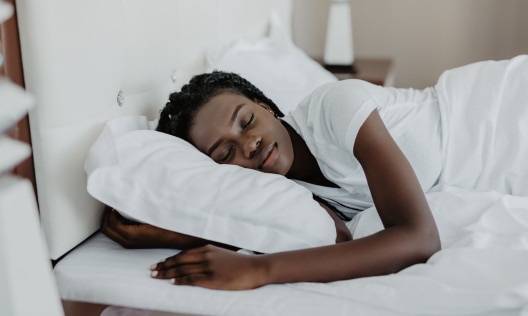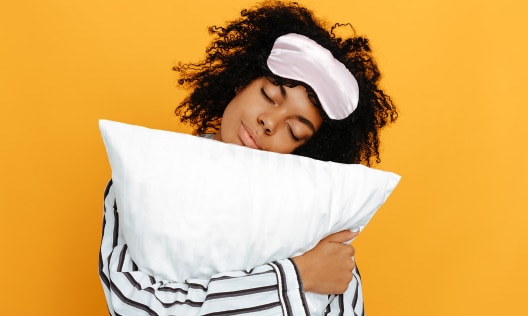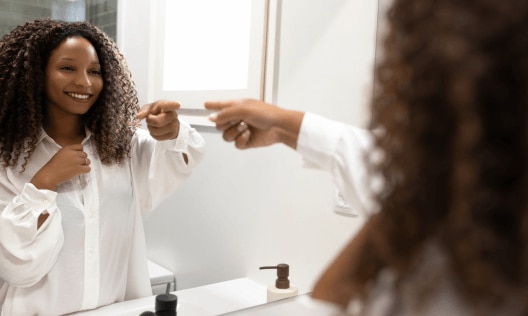Night Sweats in Women: Causes, Solutions, and When to Worry

As a woman, night sweats can sometimes be a distressing experience. Whether you wake up drenched or find yourself tossing and turning due to heat, understanding the root causes of night sweats can help you take meaningful steps to manage it. We look at the leading causes of night sweats in women, share solutions to help you stay cool and comfortable, and explain when it might be time to seek medical advice.
What causes night sweats in women?
Night sweats, also known as nocturnal hyperhidrosis, are episodes of excessive sweating during sleep. For women, night sweats can happen for a bunch of reasons, often linked to hormonal changes. Here are some of the most common reasons:
Hormonal fluctuations
Hormonal imbalances are a leading cause of night sweats in women. These changes can occur due to:
- Menopause: Hot flashes are a hallmark of menopause and often occur at night, which leads to disruptive sweating. These episodes create fluctuations in estrogen levels, which affect your body’s temperature regulation.
- Polycystic ovary syndrome (PCOS): PCOS can cause hormonal imbalances that lead to irregular sweat patterns, including night sweats.
- Pregnancy: When you're pregnant, those rising hormone levels can throw off your body's thermostat and trigger night sweats.
- Menstrual cycle: Some women experience increased perspiration during certain phases of their cycle due to shifts in hormone levels.
Medical conditions
Certain health conditions can also trigger night sweats, including:
- Hyperthyroidism: An overactive thyroid can accelerate your metabolism, which causes excessive sweating.¹
- Infections: Illnesses like tuberculosis or bacterial infections can result in night sweats.¹
- Low Blood Sugar: Diabetic women may experience night sweats if your blood sugar drops during the night.²

Lifestyle factors
Night sweats aren’t always linked to health conditions; they can be influenced by:
- Stress and anxiety: High stress levels can stimulate your nervous system, which leads to nighttime perspiration.
- Diet: Consuming spicy foods, alcohol, or caffeine before bed can raise your body temperature.
- Sleep environment: Heavy blankets, warm pajamas, or high room temperatures can cause overheating.
How to stop night sweats
Addressing the root cause of your night sweats is key to finding relief. Here are some practical steps to help:
Hormone management
If your night sweats are tied to hormonal changes, treatments like hormone replacement therapy (HRT) may be beneficial.³ Speak with your healthcare provider to explore your options.
Cooling strategies
Create a cooler sleep environment by using lightweight bedding, breathable fabrics, and a fan or air conditioner to keep your space comfortable. Pair that with moisture-wicking sleepwear designed to pull sweat away from your skin, so you stay dry and cozy all night long.
Whole body care
Consider SheaMoisture whole body deodorant for women, a gentle and effective solution to help manage odor caused by night sweats. These aluminum-free, plant-based products are Black dermatologist and gynecologist-approved, sensitive-skin friendly, and designed to celebrate and protect rich melanin skin.
Hydration and nutrition
Stay hydrated by drinking water to replace the fluids you lose through sweating, and try to avoid triggers like spicy foods, alcohol, and caffeine in the hours before bed.
Relaxation techniques
Practice stress-relief techniques like meditation, yoga, or deep breathing to calm your mind and body before bed.
Consistent sleep schedule
Go to bed and wake up at the same time every day to support your body’s natural rhythms.
When should you worry about night sweats?
While night sweats are often harmless, there are instances when they warrant further investigation. Contact your doctor if you experience:
- Unexplained weight loss: Night sweats paired with significant weight loss could indicate an underlying health issue.
- Persistent fever: Recurrent sweating with a fever might signal an infection or other medical condition.
- Chronic Night Sweats: If night sweats occur frequently without an obvious cause, it’s essential to seek medical advice.
Night sweats in women can feel overwhelming, but with the right approach, it is manageable. SheaMoisture is here to support your journey with products like our plant-based whole body deodorant. Not only are these gentle on sensitive skin, but they also honor and celebrate the beauty of Black women’s unique needs. Rest easy knowing you’re using products designed to uplift and empower.
If night sweats stick around even after you’ve made some changes or start messing with your sleep, it’s time to check in with a healthcare pro. Figuring out what’s causing them and finding the right fix can help you get back to those peaceful, restful nights you deserve.
References
- Mayo Clinic.“Night Sweats.” 2024.
- American Osteopathic Association. “Excessive sweating keeping you up at night? Know when it's time to see your doctor.” Nd. Accessed Dec 2024.
- Web MD. "Hormone Replacement Therapy for Menopause." 2023.
Dive into more self-care tips and how-to guides.
- slide 1
- slide 2
- slide 3







